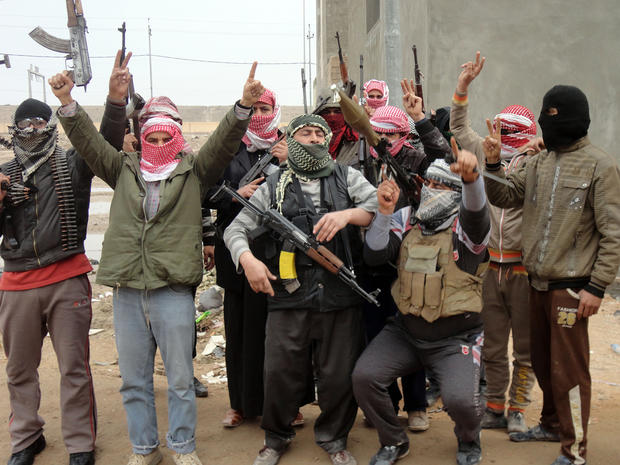Jihadist-bred chaos spreading in Mideast
Parts of the Middle East appear to be unraveling.
In Iraq, the government is losing significant ground to al Qaeda militants. On Sunday, fighting in Anbar province killed 22 Iraqi soldiers and 12 civilians. This is happening as Syria's civil war is spilling into Lebanon.
Ongoing chaos in the Middle East is creating what nature abhors and fanatics love: a power vacuum.
Al Qaeda affiliated gunmen have taken over the streets of Fallujah, a resurgence of the civil war that the U.S. invasion of Iraq sparked off.
In what now looks like a wasted effort, more than 100 U.S. Marines lost their lives in Fallujah in 2004 in a fight to drive the militants out and hand control to the Shiites who now run Iraq.
Today, the U.S. has no leverage other than backing the Iraqi government.
Secretary of State John Kerry, mired in the increasingly problematic Israeli-Palestinian peace deal, offered the Iraqis moral support.
"We're not contemplating putting boots on the ground. This is their fight, but we're going to help them in their fight,” Kerry said. “This is a fight that is bigger than just Iraq."
That's a diplomatic understatement. Jihadists have plunged into the carnage in Syria as a step towards establishing an Islamic state.
Neighboring Lebanon has also been sucked in. The intervention of the powerful Hezbollah movement on the side of Syria has been met with car bombs and assassinations.
The jihadists' proclaimed goal is an unified Islamic fundamentalist state encompassing Iraq, Syria and Lebanon.
But the real issues are much murkier and far more complex, according to former U.S. Ambassador Edward Walker.
"This fight is much bigger than Iraq,” Walker said. “It is something that has its depth in history, it's got its depth in religion. It is far broader than just a question of borders or national pride."
And nobody seems willing or able to fill the gap between them -- a perfect opening for the jihadists.
